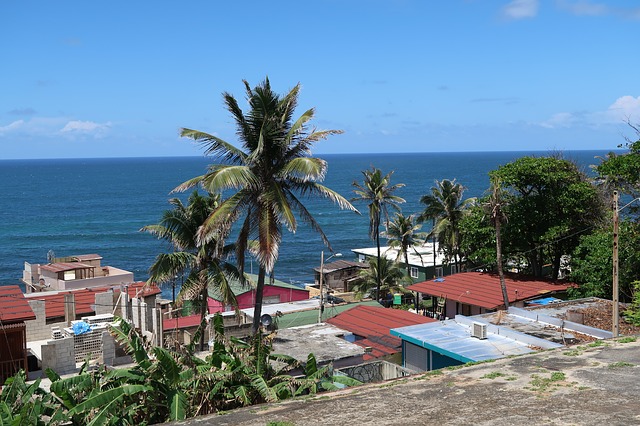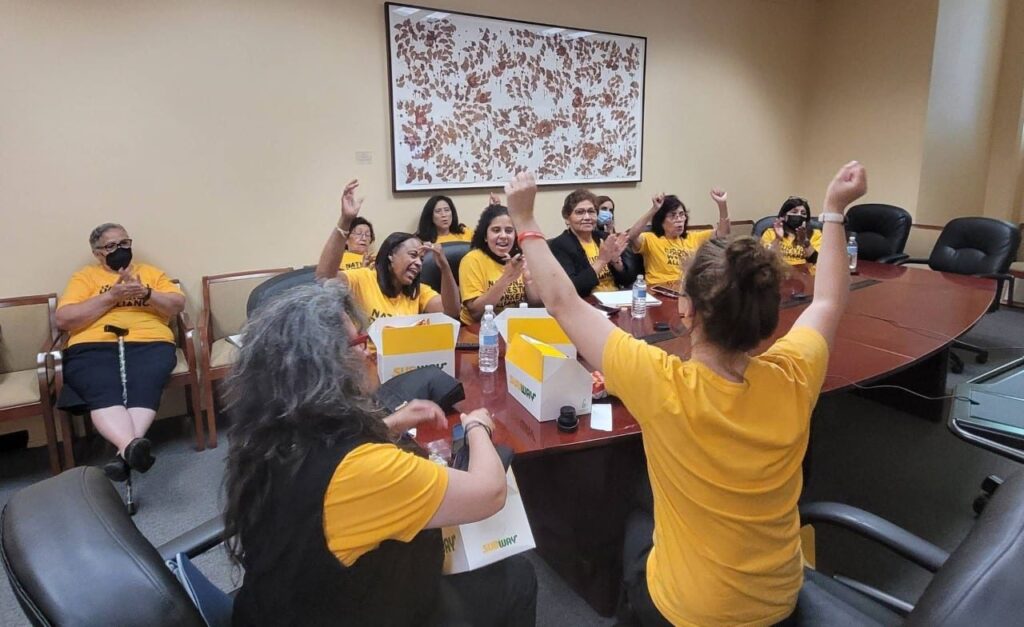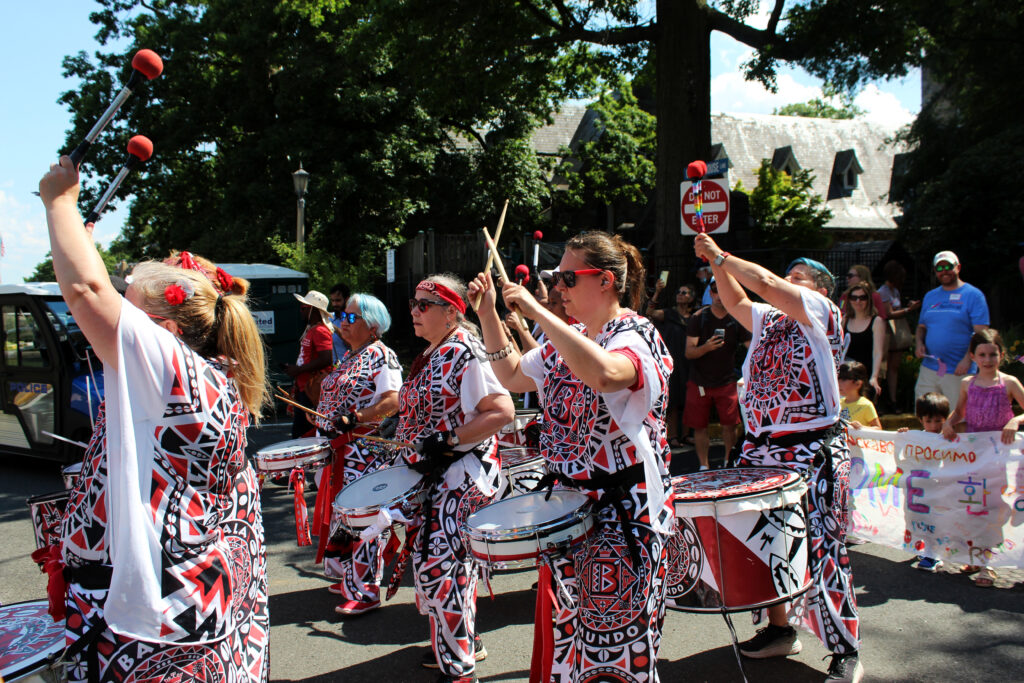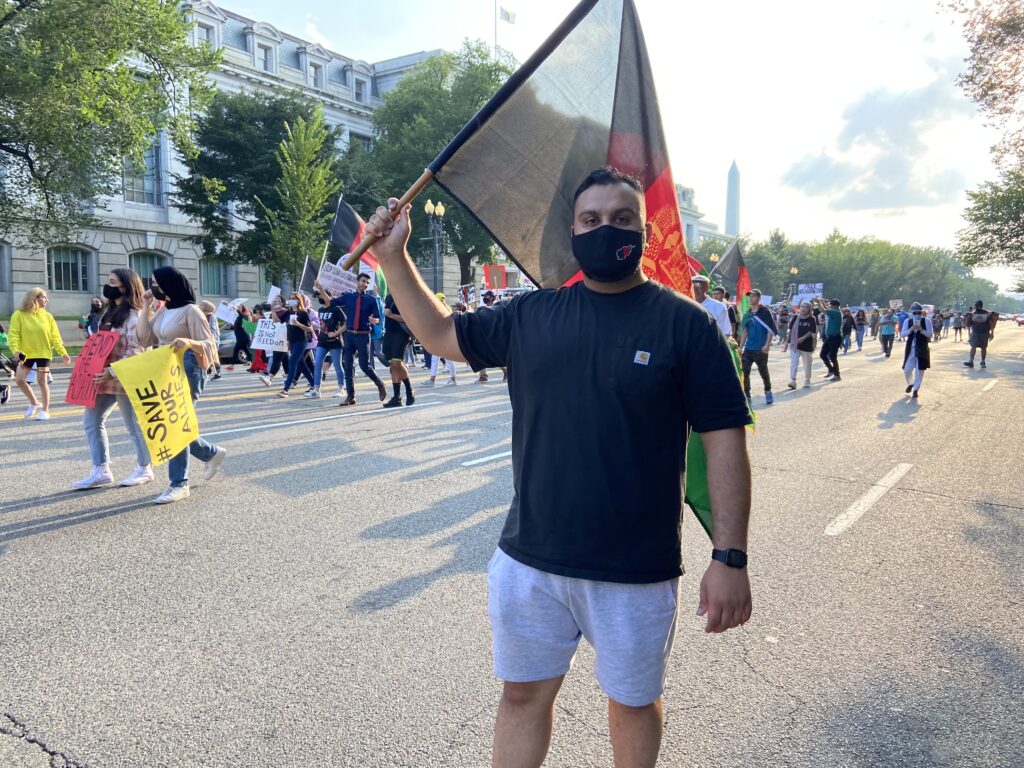This is the story of a Puerto Rican who is homeless in D.C., or “homefree,” as I would prefer to be considered. Directly from the land of enchantment, this is the story of Juan Alfredo San Jose Gonzalez, the last Puerto Rican among this generation of his family who refuses to leave an island perishing drowning in an ocean of greed and ignorance!
My family’s history is marked by its exodus toward the continental United States in an effort to simply survive, escaping from the co-existing poverty and extreme decadence brought about by an exploitative, imperialist colonial relationship between the United States and Puerto Rico’s population.
The notion that Puerto Ricans live off the wealth of the U.S. federal government is false. We are instead kept mired in need, in a state of dependence. Our people could otherwise be living off the fertile land and sea, in a peaceful and mostly self-sufficient existence. . Our island provides much.
Even though I am a U.S. passport holder identified as an “American,” I cannot vote for the president of the country that grants me citizenship. We are also denied self-governance. A control board was recently imposed on us by the United States Congress. And its sole objective seems to be systematically selling off and dismantling the future of all Puerto Ricans until we cease to exist.
We are being gentrified.
My mother was born in the town of Utuado, within the island’s central mountain range, a stone’s throw away from major mining perforations made by the U.S. Government agencies and corporations in the 1960s. It is one of the largest deposits of copper and gold (among other minerals not to be disclosed) controlled by the United States. The natural deposits are so large that they cannot be mined and exploited without altering the topography and rendering the land useless and inadequate for living. Yet the mining plans are moving forward and will permanently destroy the land to satiate the insane greed of a few. The plans look more and more like something out of a horror film or science fiction novel every day.
The government and the capitalist investors that would benefit from such extractive practices, certified and supported by the U.S. government, are paving the road for this to happen through a new land classification plan. It will put the whole island up for sale, piece by piece, fast tracked for investors and the government to prey on.
The fifth of seven sisters, my mother was born in 1931. Two of her sisters died young of “raquitismo,” an epidemic of preventable tropical diseases that killed many people in poverty who also suffered from malnutrition, lack of proper hygiene and lack of access to simple medical treatment. The working-class population was neglected and fell victim to American landowners who exploited Puerto Ricans, devalued the currency, and forced people to sell their land at rotten fish prices.
Without land ownership, the potential for a self-sustaining agricultural economy (that already existed and was dismantled and destroyed to use for development of privately owned extensive plantations), was strangled. Many were forced into the sugar cane fields and factories in order to survive. Depending on low wages and company housing, these virtually enslaved workers and their families were drained of life and died in misery.
By the end of the 1940s, in the midst of the Great Depression aftermath, my mother migrated to New York in the biggest exodus of our people to the U.S. until what is going on now, in the wake of Hurricane Maria and under pressure from developers swooping in for cheap land. She went along with her surviving sisters, my grandma “Mamabuela,” and my grandpa “Papito.” Her parents went to work immediately, Mamabuela in the textile industry and Papito as a dishwasher and as an ”alley-barber,” doing haircuts and trimming beards and mustaches after work.
Mom and my aunts worked and went to school. All the family lived together, renting a tiny apartment in a Jewish neighborhood practically ripped from the pages of West Side Story. Along with her sisters, they obtained their education, became professionals, and returned to the island to start their own families. My mother always remained extremely grateful to the United States and their people, she lived the American dream in all its glory.
I share the same feeling for all the good people in America, the “true American nation” with exemplary moral values, the free nation that depicts one of the crowns I feel proudly part of, I believe in the dream of a free, multicultural nation of hard-working people that provides high standards of living for all its good people. But that dream was purposefully structured to exclude certain people and was certainly never shared with Puerto Ricans. I cannot feel grateful toward the government that forced her and my family out of our own nation, a non-belligerent nation, which had already been victimized by other empires before this one.
Puerto Rico has been referred to as the “triple crown” by some historians. The first “crown,” long ago, refers to the Taino indigenous heritage. In the arawak archipelago nation. Puerto Rico was seen as the island where God lived, in the sacred mountain of El Yunque, our rainforest, which is unique to all the caribbean islands. The second crown refers to when Spain invaded and colonized in our island in the name of God. And most recently, the third crown is held by the American “empire,” retaining Puerto Rico as a colony disguised as a “non-incorporated territory” for obvious political and financial reasons, because… “In God we trust”.
So you can see, our story in recent history has been one of invasion, colonization, and exploitation — leaving a confused trace of our own identity. Puerto Rico should be free to guide our destiny in peace.
I grew up between the country town of Utuado and the city of Rio Piedras in San Juan. My family later moved to the city for good, where I went to school, During my senior year I moved to the United States and studied at Amherst High School while attending the University of Massachusetts at Amherst through a transitional program. It was here that I first experienced the complicated multi-cultural scene in the United States, with its privileges, worries, prejudices, opportunities, and inequalities.
Missing my “terruño,” my homeland, I returned to the island to attend the University of Puerto Rico’s main campus in Rio Piedras.
(To be continued).
Juan Callejon is a pseudonym that translates to “John Alley.”







